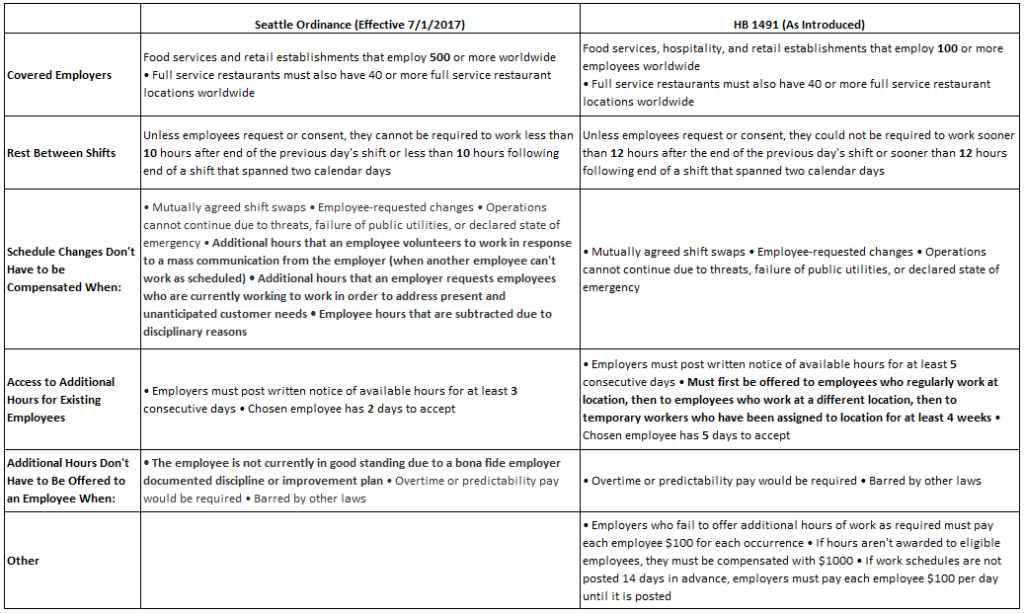7:27 am
January 28, 2019
Since July 1, 2017, certain employers in Seattle have had to comply with the city’s scheduling ordinance. A new bill has been introduced in the Legislature that would apply similar rules statewide for food services, hospitality, and retail establishments. It would reach more establishments (by size and industry) than the Seattle ordinance.
Under HB 1491, covered employers would not be allowed to schedule or require an employee to work sooner than 12 hours after the previous day’s shift or sooner than 12 hours following the end of a shift that spanned two days. If employees consent to such hours, they would have to be paid time and a half for hours worked that are fewer than 12 hours apart.
Covered employers would have to provide written work schedules at least 14 days before the first day of the schedule. If not, they would have to pay each employee $100 per day that it is not posted.
If employers want to change the schedule after posting the advance notice, employees may decline to work the new hours. If employees work the changed hours, they would have to be compensated with at least one hour of pay (on top of wages) for changes that add or keep the same number of hours. They would have to be compensated with at least one-half times their regular pay for any changes that reduce hours.
If employers want to add hours, they would first have to offer them to existing employees. If an employer knowingly fails to comply or makes a “significant change to the employee’s work schedule due to changes in the employer’s business needs,” employees would be “considered to have good cause to leave work” and thus be eligible for unemployment benefits.
Covered employers would be food services (including, but not limited to, those classified in NAICS code 722), hospitality (including, but not limited to, NAICS codes 721110 and 721120), or retail (including, but not limited to, NAICS codes 44110 through 453998) establishments that employ 100 or more employees worldwide. Full service restaurants would also have to have 40 or more locations worldwide to be covered. (The worldwide counts include franchises associated with franchisors that employ 100 or more.)
HB 1491 largely mirrors Seattle’s ordinance, but there are some differences, as shown in the table below. Besides Seattle, four other cities in the U.S. have similar ordinances. Oregon is the only state that has such a law. This is a pretty new idea: the earliest of these laws was effective in San Francisco just in 2015. As we wrote a few years ago, scheduling is part of the compensation mix, and “when the government mandates specific benefits or working conditions, the optimal mix for a given employee may no longer exist.” Many workers value flexibility, and that flexibility would be reduced if the state restricts scheduling practices.

